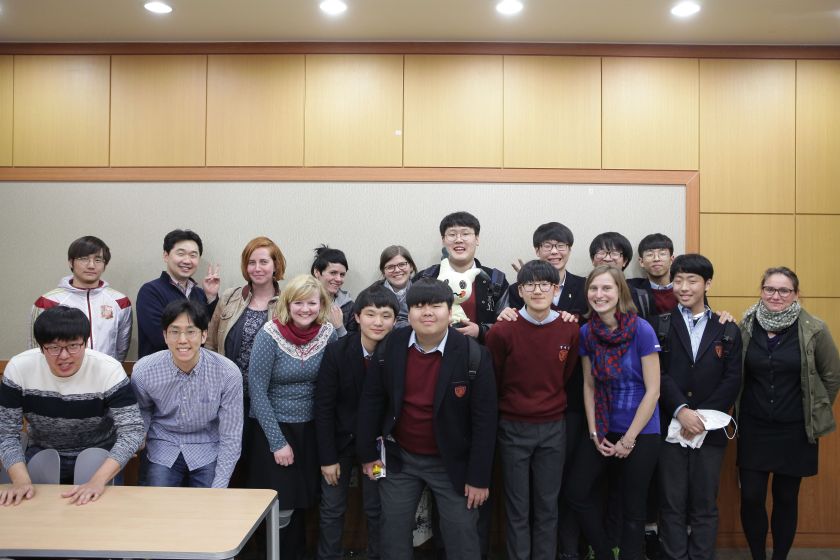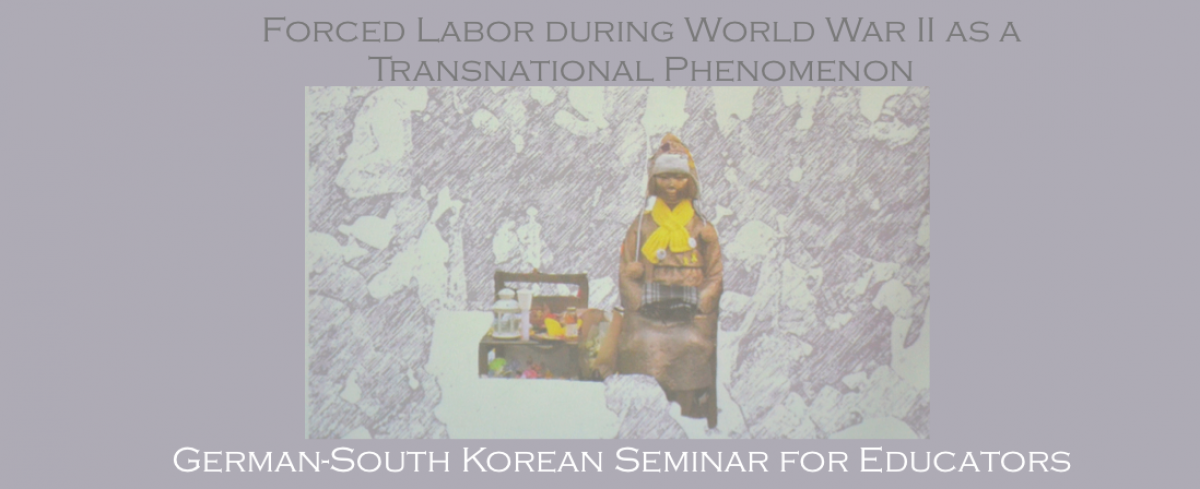Forced Labor during World War II as a Transnational Phenomenon
German-South Korean Seminar for Educators
Berlin, Germany: August 14 – 21, 2016
Seoul, South Korea: April 7 – 15, 2017
The overall aim of the seminar series was to discuss contemporary challenges facing history educators in Germany and South Korea, with particular emphasis on teaching the history of forced labour during WWII, make the participants acquainted with teaching and research trends on forced labour during WWII, and encourage the exchange of ideas for partnered projects between German and South Korean participants and staff members.
„This seminar showed the importance of educating the educators. How much can you teach from a transnational perspective if you do not know enough of both sides? I could not teach concepts like racism or forced labor without knowing the context.“ (Paula Oppermann)
„One goal of this bilateral project was to encounter with each other and benefit from the different perspectives on the subject matter. Learning from and with each other is not only important for high school students and young adults but also for educators who can implement their new insights in their teachings.“ (Tanja Vaitulevich)
„In this seminar the geography of my mind was rewritten and expanded on the issue of forced labor. I learned about the global scale of forced labor and thought about how history can be taught in transnational perspective. Also, I think it is important to reflect upon the time we live in and question whether there are still forms of forced labor in Korea and other societies today“. (Ki-Jun Kwon)
„In theory we knew about German history but when meeting with you we learned more. We learned something that is relevant for our current activism: We learned from you for our own way to go.” (high school student, Kyungmoon High School)
„When we talk in Germany about education and commemoration we usually say “memory needs knowledge”. It is very important to fully grasp the historical phenomena, avoid overgeneralizations, and to dig deeper into the historical issues in order to draw questions that are relevant for nowadays and problems we face today.“ (Rebekka Schubert)
„For me this seminar meant transnational education in action. I never got the chance to participate in such projects when I was in high school, but I am glad I got the chance to join this project as a graduate student. Even now I learned a lot that will be relevant for my future work as a historian.“ (Kyudong Lee)
„When thinking of the Second World War in Europe, the Holocaust comes to my mind. In this project we learned more about other mass atrocities such as forced labor. We also worked with new methods like pictures. The method of using pictures was very vivid and helpful in approaching the new topic. These days there is a huge pressure for high school students because of college entrance exams. It was the first time for us in history class that we tried more creative methods but in end it was very effective.” (high school student, Kyungmoon High School)
„The fact that there are so many similarities tells us something crucial about general structures in that period. Structures hat lead to catastrophes. I think there is something profound hidden in that history and we need to look at that.“ (Sandra Franz)

Participants with high school students from Kyungmoon High School
